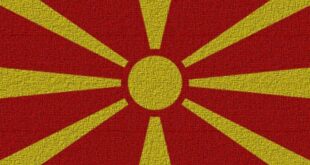The EU will almost certainly not extend a start date for Macedonia’s accession talks at tomorrow’s European Council summit in Brussels, thus effectively putting the country’s EU bid on hold until it solves the name row with Greece.
Following Monday’s meeting in Luxembourg in preparation for the summit, EU foreign ministers did not mention Macedonia in their conclusions on the Western Balkans.
Instead, the EU ministers agreed to encourage all Western Balkan countries in their efforts to meet membership criteria. The foreign ministers also urged all parties to address outstanding issues with neighbouring countries.
“This means that Macedonia has now definitely been put at the very bottom of the EU agenda,” Stevo Pendarovski, the former advisor of ex Macedonian President Branko Crvenkovski, told Balkan insight.
This was expected in light of the slow pace of name negotiations over the past six months, he noted. During that period the UN mediator Matthew Nimetz held only one round of Athens-Skopje negotiations.
Pendarovski argues that pending a breakthrough in the name talks Macedonia will remain at the bottom of the EU agenda and will be mentioned only formally as an EU candidate country.
EU foreign policy chief Catherine Ashton said Monday in Luxembourg that Macedonia was put briefly on the table for discussion during the foreign ministers’ meeting.
Without revealing further details she praised the ongoing UN led Athens-Skopje name negotiations, hinting that once there is a breakthrough, the EU will be able to move forward on the issue of extending a start date for Macedonia’s accession talks. She expressed hope that this would happen soon.
Macedonian Foreign Minister yesterday expressed regret that the bilateral dispute had hampered his country’s hopes of being granted a start date, adding that this will have a serious negative impact.
“That kind of decision won’t motivate us and will have a negative effect on the enlargement process as well as on the EU’s credibility in Macedonia. However, that doesn’t mean that we won’t invest or work more, but it would have been much different if we had been rewarded for our efforts,” Milososki said.
Athens and Skopje have been locked in a dispute over the use of the name Macedonia for 18 years. Athens insists that Skopje’s official name, Republic of Macedonia, implies territorial claims against its own northern province, also called Macedonia.
In December last year Athens blocked Skopje from getting the desired start date despite a positive recommendation from the European Commission. Greece is also blocking Macedonia’s NATO accession.
 Eurasia Press & News
Eurasia Press & News



